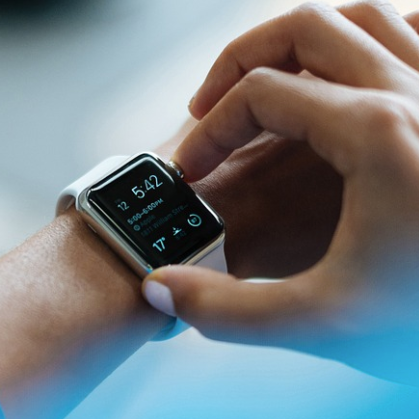Smartphones Can Help Track the Progression of Multiple Sclerosis
Algorithms and machine learning may dissect real-world data, according to Roche.

It’s become a cliché: The smartphone in one’s pocket is stronger than the computer that powered the first mission to the moon. But that adage omits another revolutionary component of smart devices. These technologies derive strength not only from their computing capabilities, but also their many novel uses.
Take the drugmaker and healthcare organization Roche’s announcement last week that its FLOODLIGHT clinical trial program yielded findings suggesting smartphones and smartwatches could grow to play a bigger role in helping healthcare providers care for patients with multiple sclerosis (MS). The data, presented at ECTRIMS’ MS Paris 2017 conference, support the tool as a “potential complement to in-clinic testing to provide a more complete and consistent picture of a patient’s disease progression,” according to the company.
FLOODLIGHT, of course, incorporates a great deal more than the latest Angry Birds app. Roche designed the tool to examine sensor-based outcomes through neurological tests and passive monitoring, which is where smart devices come in. Essentially, it fosters a “continuous stream of precise, real-world” information on the progression of MS. Algorithms and machine learning then dissect the data.
Patients are “highly engaged” with Roche’s mobile assessments, the company found. Among those with at least 14 weeks of adherence data, 77.99% of patients with MS followed the active tests and 90.73% complied with passive monitoring, according to the study. Each percentage outnumbered the adherence of the healthy controls.
That finding capped the poster revealing the clinical trial data. Those results, Roche wrote, suggest that FLOODLIGHT can empower patients.
The devices also proved to be useful in gauging a patient’s underlying disease activity. Taken together, these assessments and early correlation analyses suggest that the clinic-smartphone mix could improve how providers treat MS.
For example, the clinical trial suggests that a smartphone-based pinching test could spot subclinical impairment in patients with standard 9-Hole Peg Test performances, according to Roche. The exercise scrutinizes how well patients can grip and grasp, probing muscle weakness and hand-eye coordination.
Moreover, a smartphone-centered U-turn test correlated with an in-clinic assessment, the timed 25-foot walk, showing promise that this particular technology could also detect subclinical activity compared to in-clinic performances, according to the organization. The digital exam aimed to spotlight “unusual patterns” in walking, prodding patients to perform several U-turns, measured by their phones or watches.
Overall, the results suggest that FLOODLIGHT “may collect meaningfully relevant outcomes in an unobtrusive manner and that passive monitoring algorithms may be capable of detecting change in MS disease course,” Roche wrote.
The company plans to continue the program to better learn how to integrate these technologies into patients’ daily lives. The “ultimate vision,” according to Roche, is to “develop a proven and transformational approach to understand progression and improve the lives of people with MS.”
In the past, the organization has teamed up with Prothena to use smartphones to help people with Parkinson’s monitor the fluctuations of the disease. That program, according to a 2015 announcement, leveraged the technology to perform voice, balance, gait, dexterity, rest tremor, and postural tremor tests.
Podcast: Adoption of Healthcare Tech in the Age of COVID-19 with Dr Kaveh Safavi
June 22nd 2021Kaveh Safavi, MD, JD, global health lead of Accenture Health, discusses how the pandemic influenced the speed at which healthcare organizations adopted new technologies and how this adoption is impacting patient care.